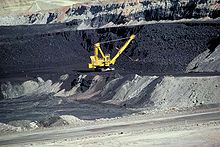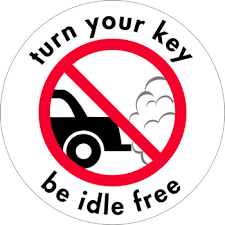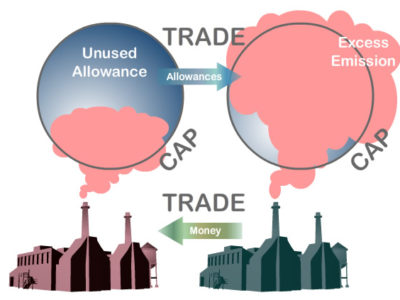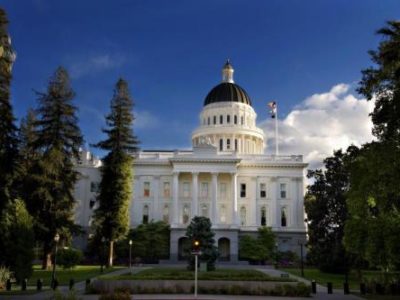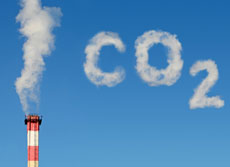Region: National
The Downward Political Spiral of a Declining Industry
As the coal industry weakens economically, it also loses political clout.
Tighter regulation contributes to an environmentally dirty industry’s economic decline, which reduces its political clout, which allows more regulation, further weakening the industry. Coal is prime example. The coal industry’s economic plight is well-known. Coal production is the lowest since a major strike 35 years ago. In fact, my colleagues at the business school report that coal …
Continue reading “The Downward Political Spiral of a Declining Industry”
CONTINUE READINGBikes in Wilderness
A misguided proposal in Congress
This New York Times article notes that a bill (S. 3205) is pending in Congress to allow mountain bikes in federally-designated wilderness areas. In short, the bill is a terrible idea. First, on the merits, allowing mountain bikes into wilderness areas has the potential for significant impacts both on other humans using wilderness, and on …
Continue reading “Bikes in Wilderness”
CONTINUE READINGIdling Cars, Dirty Air
The pollution isn’t just indoors. It’s also inside the car or bus.
Being stuck in traffic is even worse than you thought. A new study, reported in yesterday’s NY Times, “pollution levels inside cars at red lights or in traffic jams are up to 40 percent higher than when traffic is moving.” But things could be worse: you could be a kid on an older school bus. …
Continue reading “Idling Cars, Dirty Air”
CONTINUE READINGWhy Does Industry Always Attack New Rules?
It makes businesses look obstructionist and often gains them nothing. So why do they do it?
It seems like every time EPA makes a move, industry says it’s another job-killing power grab by the government and files court challenges within about an hour of EPA’s action. But why? The rule often survives judicial review, so industry spends millions on lawyers and gets nothing in return. It’s true that industry does often win at …
Continue reading “Why Does Industry Always Attack New Rules?”
CONTINUE READINGCap and Trade’s Future in California, Redux
Litigation, AB 197 and Politics May All Have an Influence
Two days ago, I posed a series of questions about what AB 197 might mean for the future of cap and trade in California but never really answered the question of whether we’re likely to see a continuation of the program going forward post-2020. Eric posted his view this afternoon that he is relatively pessimistic …
Continue reading “Cap and Trade’s Future in California, Redux”
CONTINUE READINGThe Clinton Foundation and the Environment
There’s a lot of talk about where the money comes from. But where does it go?
We hear a lot about the Clinton Foundation these days, but it’s all about where the money comes from. That’s outside the scope of this blog, but it made me curious about what they do with the money. In particular, I wondered what they did for the environment. Since the only thing I really knew …
Continue reading “The Clinton Foundation and the Environment”
CONTINUE READINGDoes AB 197 Mean the End of Cap and Trade in California?
Language Directs the Air Resources Board to Prioritize Direct Emissions Reductions
As Ethan’s post recounts, the California Assembly today passed AB 197, a bill linked to SB 32, which extends California’s climate goals to 2030 and requires emissions reductions by that year of 40 percent below 1990 levels (see my post from yesterday describing the bills and how they are linked). The passage of the two …
Continue reading “Does AB 197 Mean the End of Cap and Trade in California?”
CONTINUE READINGSB 32 Passage Great News But Legislature Needs to Pass AB 197 Too
AB 197 Would Curtail California Air Resources Board Power, Potentially Restrict Cap-and-Trade
Ethan reported the good news today that the California Assembly passed SB 32, legislation that would extend California’s landmark climate change legislation to 2030 and require deeper cuts in emissions. The original legislation, AB 32, required that California cut its emissions to 1990 levels by 2020. SB 32 requires that the state achieve a 40 …
Continue reading “SB 32 Passage Great News But Legislature Needs to Pass AB 197 Too”
CONTINUE READINGLibertarian Candidate Endorses a Carbon Fee
Gary Johnson has put his weight behind
In an interview in Alaska, Gary Johnson endorsed the idea of a fee on carbon emissions. Here’s what he had to say, according to E&E News: “Johnson described his “free market approach” to global warming to the Juneau Empire in an interview published this weekend. He said his plan would include a fee, “not a …
Continue reading “Libertarian Candidate Endorses a Carbon Fee”
CONTINUE READINGA Small-Government Approach to Pricing Carbon
We can impose a price on carbon without a tax or emissions trading. Here’s how.
Cap and dividend is a politically appealing idea; put a price on carbon, then refund the money to consumers in equal shares. But conservatives and libertarians object to this idea on two grounds. First, cap-and-trade systems are complex and require a lot of regulatory oversight. Second, if the government collects the money, despite its current …
Continue reading “A Small-Government Approach to Pricing Carbon”
CONTINUE READING



